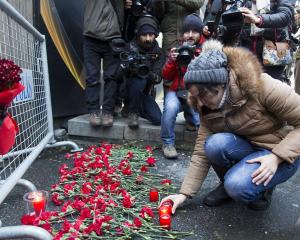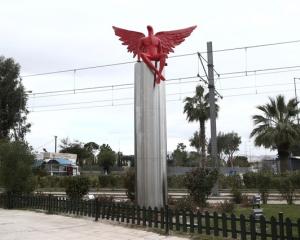
Talks to reunify the divided island of Cyprus collapsed in the early hours of Friday (local time), UN Secretary General Antonio Guterres said after a stormy final session.
"I'm very sorry to tell you that despite the very strong commitment and engagement of all the delegations and different parties . . . the conference on Cyprus was closed without an agreement being reached," he told a news conference.
The collapse marked a dramatic culmination of more than two years of a process thought to be the most promising since the island was split more than 40 years ago.
Guterres had flown in on Thursday to press Greek Cypriot President Nicos Anastasiades and Turkish Cypriot leader Mustafa Akinci to seal a deal reuniting the east Mediterranean island, while US Vice President Mike Pence had phoned to urge them to "seize this historic opportunity".
Diplomatic efforts to reunite Cyprus have failed since the island was riven in a 1974 Turkish army invasion triggered by a coup by Greek Cypriots seeking union with Greece.
The week of talks in the Swiss Alps, hailed by the United Nations as "the best chance" for a deal, ground to a halt as the two sides failed to overcome final obstacles.
Diplomats said Turkey had appeared to be offering little to Greek Cypriots wanting a full withdrawal of Turkish troops from the island, although the Greek Cypriots had indicated readiness to make concessions on Turkish Cypriot demands for a rotating presidency, the other key issue.

Guterres finally called a halt at 2am after a session marred by yelling and drama, a source close to the negotiations said.
"Unfortunately... an agreement was not possible, and the conference was closed without the possibility to bring a solution to this dramatic and long-lasting problem," Guterres said.
"That doesn't mean that other initiatives cannot be developed in order to address the Cyprus problem," he added.
He declined to elaborate on what exactly had caused the talks to collapse, but said there was still a wide gap between the two delegations on a number of questions.
Greek Cypriots, who are due to launch a gas drill off the island in coming weeks that Turkey opposes, pointed the finger of blame at the Turkish Cypriot side.
Nicos Christodoulides, spokesman for the Greek Cypriot government, said Turkey had refused to relinquish its intervention rights on Cyprus or the presence of troops on the island.
"Tonight's development is in no way positive, but it is not the end of the road either," he said.
But he appeared tired and downcast as he announced the collapse of the talks to a handful of journalists at an impromptu news conference that lasted only three and a half minutes.
Diplomats say that Cyprus should be much simpler to resolve than many other situations where the United Nations hopes for peace, such as the bloody and complex wars in Syria, Yemen, Ukraine, South Sudan, Libya, or the Korean peninsula.
Success in the Cyprus talks would have given Guterres a high profile at the G20 talks in Hamburg, where he is due on Friday, and where he will meet US President Donald Trump, who has promised to cut the US share of UN funding.










